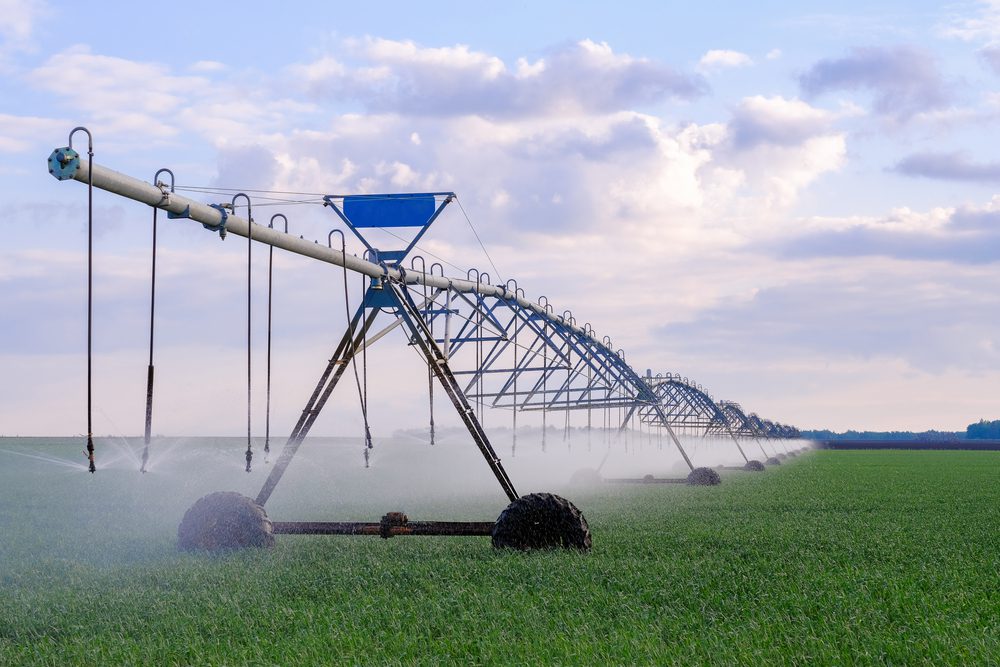A Detailed Guide To Fluid Handling Pipe Material Selection

Fluid handling systems are integral to the smooth operation of manufacturing, industrial facilities, and agricultural operations. Whether constructing a new system, upgrading an existing one, or specifying pipes for irrigation, selecting the right pipe material is a critical decision. The best choice depends on specific fluids being transported, operational demands, and your facility’s unique requirements.
Key Factors For Choosing The Right Pipe Material
How Liquid Properties Affect Pipe Material Choice
The nature of the liquid you’re transporting dictates pipe material choice. Corrosive liquids like crude oil, ammonia, seawater, and acids need specialized materials like plastic CPVC or lined pipes. Even ‘mild’ liquids can have some corrosive effects, so consider corrosion-resistant options. Non-corrosive fluids or gasses like lube oil, air, and nitrogen are fine with carbon steel or metal piping. Always factor in the specific abrasiveness of your liquids, as chemicals, acids, and saltwater are harsher than standard water or oil.
Here’s why:
Corrosive vs. Non-corrosive: Water used for irrigation can contain fertilizers, salts, or other chemicals that might cause corrosion over time. Assess the corrosiveness of your source water.
Material Options:
- Steel: Offers good corrosion resistance and is suitable for water and some chemicals in irrigation.
- Aluminum: Resists rust and works for non-corrosive irrigation water but can corrode in harsher conditions.
- Plastics with Linings (PTFE, PVDF): These provide superior corrosion resistance, excellent for handling chemically treated water in irrigation.
- Copper: Common choice due to availability but less ideal if your water source is corrosive.
Steel offers a strong balance of affordability, durability, and corrosion resistance, making it a versatile choice for many irrigation systems.
Temperature-Smart Pipe Selection For Irrigation Success
The temperature of liquids flowing through your irrigation system directly impacts pipe material selection. Consider these points:
- High Temperatures: Some plastics may soften or degrade under prolonged heat. Metals are generally more heat-tolerant but can become very hot. Look for materials specifically rated for your temperature range.
- Extreme Temperatures (Hot or Cold): Specialized materials are essential to prevent pipe damage, leaks, or contamination of the liquid.
- Temperature Maintenance: Does your irrigation system require precise temperature control for optimal plant growth or to handle specific water additives? Your pipe material should aid in maintaining the desired temperature.
Liquid Pressure: Understanding Its Impact On Pipes For Irrigation
The pressure within your pipes for irrigation is crucial for selecting the right material. Too much pressure can lead to pipe bursts, leaks, and potential damage.
Pressure Ratings: Ensure your pipes are rated for the expected pressure levels within your irrigation system. This is especially important for systems handling fertilizers or chemically treated water, as they can operate at higher pressures.
High-Pressure Risks: If you need clarification on pressure levels, always opt for pipes designed to handle higher pressures. This prevents costly failures and ensures the safety of your irrigation system.
How Lifespan Impacts Irrigation Pipe Material Choice
The expected lifespan of your irrigation system directly influences the best pipe material choice. Consider these points:
Short-term vs. Long-term:
- If your irrigation system is temporary or has a planned replacement within a few years, less expensive materials might suffice.
- For irrigation systems intended to last a decade or more, invest in high-quality, durable pipes to avoid costly future repairs.
Usage Frequency: Will your system run constantly or only seasonally? Frequent use demands materials that can withstand wear and tear.
Maintenance and Environmental Resistance
Irrigation system maintenance directly impacts how long your pipes will last and how efficiently they work. Consider these aspects:
Cleaning: Some pipe materials are easier to clean, helping prevent the buildup of soil, fertilizer residue, or algae that can restrict water flow and promote corrosion.
Maintenance Types:
- Preventive: Regular inspections and cleaning are vital for all irrigation systems.
- Emergency: Choose durable materials and expert installation to minimize the risk of unexpected repairs.
Accessibility: Ensure your pipes for irrigation are installed in a way that allows easy access for maintenance and repairs.
Choosing for Your Needs: If you have limited time or resources for frequent maintenance, prioritize materials with:
- Corrosion Resistance: Especially important for irrigation water that contains fertilizers or chemicals.
- Smooth Interior: This minimizes buildup and makes cleaning easier.
Environmental Challenges for Irrigation Pipes
Your irrigation pipes face a unique set of environmental challenges, both above and below ground. Consider these potential threats:
Above Ground:
- UV Rays: Prolonged sun exposure can degrade some pipe materials.
- Weather: Rain, snow, and temperature changes can cause corrosion or stress to certain pipes.
- Chemicals: Airborne chemicals from fertilizers or pesticides can accelerate wear.
Below Ground:
- Soil: Soil composition (acidity, salt content) can lead to corrosion.
- Roots: Invasive roots can penetrate and damage some pipe types.
- Microorganisms: Bacteria and fungi in the soil can contribute to pipe degradation.
Steel’s strength and corrosion resistance make it a superior choice for irrigation systems. It can withstand the harsh conditions both above and below the ground, ensuring a longer lifespan.
Valve and Fitting Compatibility: A Key Part of Irrigation Systems
When choosing pipes for irrigation, don’t forget about the valves and fittings needed to control water flow and connect different sections. Here’s what to keep in mind:
Material Matters: Valve and fitting availability can vary depending on your chosen pipe material. Ensure compatibility before selecting your pipes.
- Irrigation Needs: Consider the specific types of valves you’ll need:
- Flow Control: Ball valves, butterfly valves
- Backflow Prevention: Check valves
- Automation: Solenoid valves
- Special Requirements: Consider pressure needs or handle debris if necessary.
The Cost of Pipes for Irrigation: Balancing Investment and Long-Term Value
When choosing irrigation pipe materials, consider these cost factors:
- Upfront Cost: This includes pipes, fittings, and valves. Some materials may be more affordable initially.
- Availability: Locally sourced materials generally cost less than imported ones.
- Maintenance: Factor in the cost of cleaning, repairs, and potential downtime due to pipe failure. Durable materials can save money in the long run.
- Longevity: Investing in pipes that resist corrosion and withstand your specific irrigation conditions can prevent costly replacements.
Irrigation Pipe Materials Decoded
Cast Iron:
- Durable and long-lasting.
- Ideal for underground applications (water, sewage, gas).
- Good for fire resistance and noise reduction.
Steel & Alloys:
- Carbon steel: For non-corrosive fluids, various grades are available.
- Galvanized steel: Handles corrosive materials, but lower pressure tolerances.
Concrete:
- Primarily for large-scale projects (water management, stormwater).
- Requires reinforcement and regular maintenance.
Other Materials:
- Brass
- Aluminum
- Copper
- Copper-nickel
- PVC
- Polypropylene
- Polyethylene
- PEX
- ABS
While each facility presents unique needs when choosing fluid handling materials, don’t overlook the time-tested strength and versatility of steel for your piping system. Here’s why:
- Durability: Steel piping, especially when galvanized, offers unparalleled resistance to impact, wear, and harsh environments – crucial in demanding manufacturing settings.
- Versatility: Steel’s range of alloys allows customization for varying pressures, temperatures, and corrosive substances. You won’t be limited in what your system can handle.
- Cost-Effectiveness: While lined pipe has its advantages, steel often offers a more budget-friendly option without sacrificing longevity, especially for smaller operations.
- Adaptability: Steel’s weldability and compatibility with various fittings mean your system can easily evolve with your facility’s changing needs.
The Right Pipes For Your Irrigation System With Bison Pipe
Enhance your irrigation system with Bison Pipe’s expert guidance. Let’s optimize your fluid handling setup together for lasting durability and efficiency. Upgrade your steel pipes for irrigation with us and experience seamless operation tailored to your facility’s unique needs.

